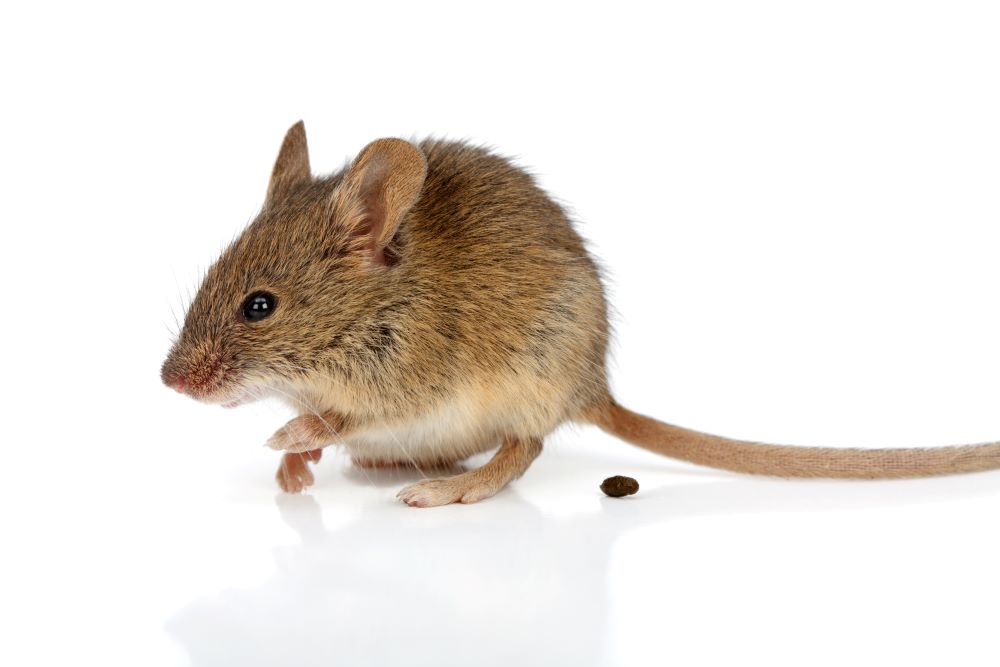Introduction: Identifying Rat Poop Vs Mouse Poop
In the world of pest control, the ability to accurately identify rodent droppings is of paramount importance. Rodents, such as rats and mice, can cause significant damage to property and pose serious health risks. If you can distinguish between rat poop vs mouse poop, you can devise a better strategy for eliminating the rodent problem. This article is aimed at helping you understand the differences between mouse poop vs rat poop, their associated health risks, and best practices for cleaning up.
What Does Mouse Poop Look Like?
Mouse droppings are usually small, around 1/4 inch in length, and have pointed ends. They are typically dark brown or black in color. Because mice are tiny creatures, their droppings are also quite small, often resembling grains of rice. Mice produce a large number of droppings, often scattered randomly throughout infested areas.
It’s important to note that the color and exact size of mouse poop can vary depending on their diet and the environment in which they live. However, the small size and pointed ends are quite consistent and can help in identification.
What Does Rat Poop Look Like?
Rat droppings, on the other hand, are noticeably larger and thicker than mouse droppings, usually about 1/2 to 3/4 inch in length. They are blunt at the ends and are typically dark brown or black in color. Rats, like mice, can also produce a large number of droppings, but unlike mice, rats usually deposit their feces in specific areas.
Again, the exact size, shape, and color of rat poop can vary depending on the species of rat and its diet. However, the larger size and blunt ends are generally good indicators that you’re dealing with rat poop.
Mouse Poop Vs Rat Poop: Spotting The Differences
Now that we understand what mouse poop and rat poop look like individually, let’s compare the two directly. The most notable difference between mouse poop vs rat poop is the size. Rat droppings are generally twice as large as mouse droppings.
The shape of the droppings is another crucial difference. Mouse poop tends to be more pointed at the ends, while rat poop is usually blunt. Lastly, the behavior of the rodents can give away the type of droppings. Mice scatter their droppings randomly while rats prefer to deposit their feces in specific areas.
Why It’s Important To Clean Up Rodent Droppings
Cleaning up rodent droppings promptly and effectively is crucial for several reasons. First, the droppings can attract other pests, creating a bigger problem for you to deal with. Second, rodent droppings can contaminate your food and water sources, leading to potential health risks for you and your family.
Moreover, the presence of droppings suggests a rodent infestation that needs to be addressed immediately. If left unchecked, a small rodent problem can quickly escalate into a full-blown infestation, causing significant damage to your property and health.
Health Risks Associated With Rodent Droppings
Rodent droppings pose considerable health risks. They can carry a variety of diseases, such as hantavirus, salmonellosis, and leptospirosis, which can be transmitted to humans through direct contact or inhalation of dust from dried droppings.
The risk of getting infected increases if you have a significant infestation in your home or if you don’t take proper precautions while cleaning up the droppings. Therefore, it’s crucial to clean up rodent droppings promptly and safely to minimize the health risks associated with them.
Best Practices For Cleaning Up Mouse Poop
When cleaning up mouse poop, it’s essential to protect yourself by wearing gloves and a mask. This can prevent direct contact with the droppings and inhalation of harmful dust particles.
You should avoid sweeping or vacuuming the droppings as this can cause the virus-laden dust to become airborne. Instead, use a damp cloth or paper towel to pick up the droppings and dispose of them in a sealed plastic bag.
After removing the droppings, clean and disinfect the area thoroughly using a solution of bleach and water. This can kill any bacteria or viruses that may be present.
Best Practices For Cleaning Up Rat Poop
Cleaning up rat poop can be a bit more challenging due to the larger size of the droppings. However, the general principles remain the same.
Start by donning gloves and a mask to protect yourself. Use a damp cloth or paper towel to pick up the droppings, avoiding sweeping or vacuuming. Dispose of the droppings in a sealed plastic bag.
After removal, clean and disinfect the area thoroughly using a bleach solution. This can help kill any harmful pathogens that may be lurking in the area.
Professional Services For Rodent Droppings Cleanup
While it’s possible to clean up rodent droppings yourself, it can be a daunting task, especially if you have a significant infestation. Moreover, without proper training, you may not be able to eliminate all the droppings and sanitize the area effectively, leaving you and your family at risk.
Professional pest control agencies have the knowledge, equipment, and expertise to clean up rodent droppings safely and efficiently. They can also help you identify the source of the infestation and implement measures to prevent future infestations.
Victory Pest Defense is Chandler’s number one pest control agency. If you’re having trouble with pesky rodents, contact us today to get started living a pest-free life!
Conclusion: Staying Safe And Proactive
In conclusion, understanding the differences between mouse poop vs rat poop can help you accurately identify the type of rodent you’re dealing with and take appropriate action. Cleaning up rodent droppings promptly and effectively is crucial to maintaining a clean, safe, and healthy environment.
Remember, when it comes to rodent infestations, it’s always better to be proactive rather than reactive. Regular inspections, prompt action, and professional help when needed can go a long way in keeping your home rodent-free.
